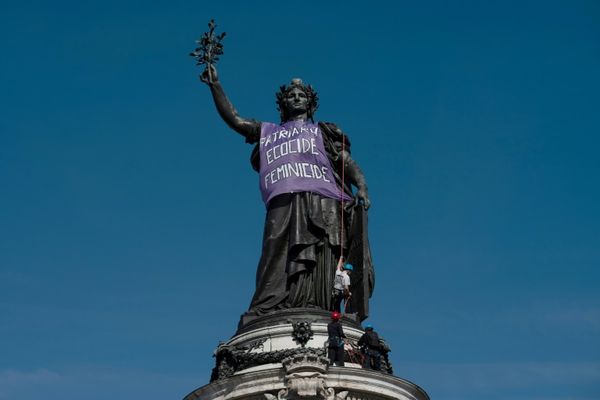The entire country of El Salvador is riding the cryptocurrency wave, even in its choppiest waters.
The first country in the world to adopt bitcoin as legal tender, the Central American nation just "bought the dip" once again and acquired 410 bitcoin (roughly $14.8 million USD), its president tweeted Friday.
"I think I might have miss [sic] the dip this time," the country's 40-year-old President Nayib Bukele wrote on his Twitter (TWTR) account on Jan. 14.
A week later, Bukele wrote that he actually "didn't miss it" and that the country he leads "just bought 410 #bitcoin for only $15 million."
The tweet quickly exploded and gathered almost 20,000 likes in an hour after being posted. Bitcoin, which nearly topped $70,000 in November, has now lost more than 40% of its value.
Given cryptocurrency's general trend upwards (over the last five years, it rose by 3,873.65%), many are speculating whether now is the time to "buy the dip."
It is not clear what type of funds, be they state or private, were used to secure the bitcoin for El Salvador, but Bukele is said to buy the country's bitcoin using his phone.
The nation's embassy did not immediately respond to TheStreet's request for clarification.
Bukele, however, has been promoting cryptocurrency like nobody else — even though the country has a GDP of $24.64 billion (the U.S. and China have a respective $19.48 and $12.238 trillion), the president talked about building a "Bitcoin City" in the shape of a coin at the foot of a volcano in the southeastern region of La Unión.
El Salvador had previously "bought the dip" when, last September, its worth fell by more than 10% upon news that Chinese property developer Evergrande was at risk of debt default.
"150 new coins!" Bukele wrote on Twitter. He said that, at the time, the country had a total of 700 bitcoin.
El Salvador's enthusiastic embrace of bitcoin put the country at the forefront of cryptocurrency discussions and, occasionally, did good things for its value: when the country declared it legal tender in June, bitcoin's worth rose by nearly 8%.
But one reason for the country's jump to use bitcoin could also have to do with a long history of remittances.
Many Salvadorans living abroad regularly transfer money to people back home and, according to numbers crunched by CNBC, and those remittances make up $6 billion, or around a quarter, of the country’s gross domestic product.
Bukele previously said online payments could be a way to avoid the high middlemen fees associated with making payment transfers.
"Besides, a big chunk of those 6 billion dollars is lost to intermediaries," Bukele wrote on his Twitter on June 5.
But critics pointed toward the dangers of hinging a national economy on something so volatile.
"Don’t buy the #Bitcoin snake oil the crypto bulls are selling. Its extreme volatility, susceptibility to fraud, and uncertainty are all reasons why BTC will never be suitable as a true currency. Bitcoin is a highly speculative asset, with a fundamental value of ZERO," Johns Hopkins economist, Steve Hanke, warned on Twitter last fall.







